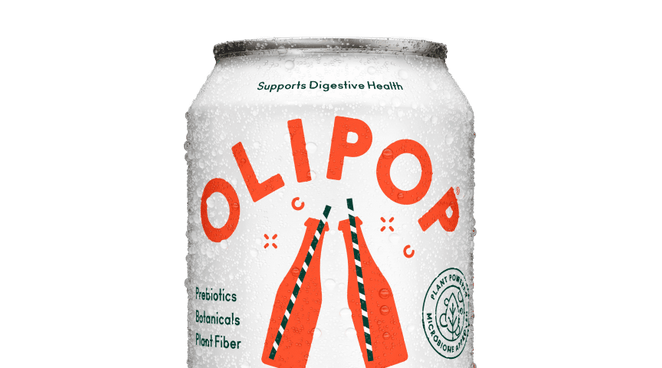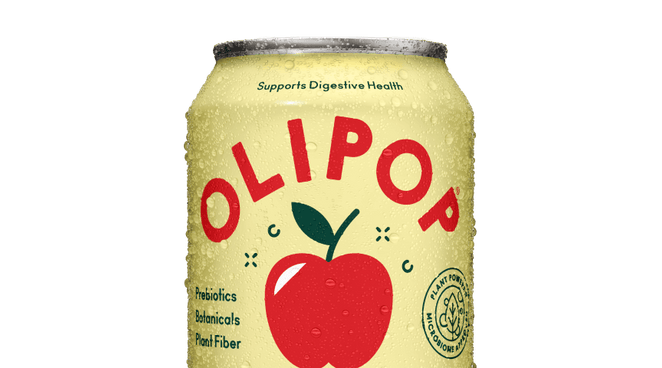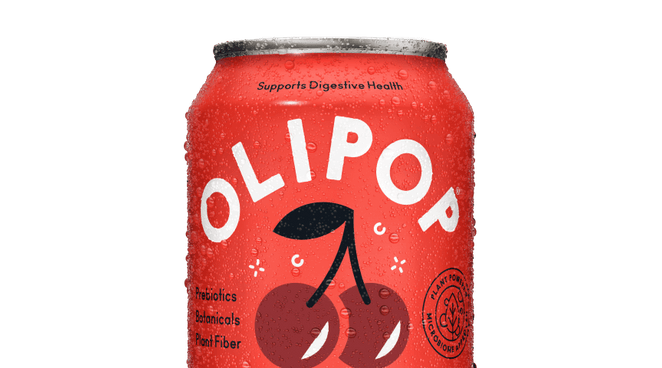Editor's Note: This article is reviewed by Lauren Manaker MS, RDN, LD, a registered dietitian and a paid contributor to OLIPOP. She specializes in digestive health and reviews OLIPOP content for scientific accuracy.
As our awareness of the importance of gut health and its myriad effects on health continues to grow, one question has captured the attention of scientists, nutritionists, and those looking to make healthier lifestyle choices: Can having a healthier gut help you lose weight?
Although this is a complicated question without a definitive answer, there may be a connection. Join us today as we delve into the complex world of the human gut where we’ll discover an intricate web of connections that extends beyond the realm of mere digestion. In this article, we’ll explore the link between gut health and weight loss, unraveling the mysteries that lie within the gut and shedding light on how to nurture this vital system.
Why Is Gut Health Important?
The gut, sometimes referred to as the "second brain," is a remarkable ecosystem populated by trillions of microorganisms that form the gut microbiota. This dynamic community of bacteria, viruses, fungi, and other microbes plays a pivotal role in maintaining our health and well-being. Beyond its digestive functions, the gut microbiota influences our immune system, brain health, mood, and even weight regulation.
An essential aspect of gut health lies in the delicate balance of the microbiota. When there is a disruption to this balance, it can lead to a range of health issues, including gastrointestinal disorders, inflammation, and compromised immune function. So, nurturing a healthy gut ecosystem becomes crucial in our pursuit of optimal health and achieving a healthy weight.
Does Gut Health Affect Your Weight?
We’re continuing to explore and understand the link between gut health and weight, with scientists constantly discovering more and more about how a healthy gut can help nurture other bodily systems. But mounting evidence suggests that yes, gut health can affect your weight. The composition of the gut microbiota influences our metabolism, appetite regulation, and the storage of fat. And certain strains of bacteria within the gut microbiota could help promote weight gain while others may support weight loss.
Studies show that individuals with diverse and balanced gut microbiota tend to have a healthier body weight compared to those with less diverse microbiota. In addition, imbalances in specific bacterial populations are often associated with health conditions. While we’re still unraveling the exact mechanisms, it is clear that our gut microbes have a profound influence on our metabolism and how we process and store nutrients.
Does Fiber Help You Lose Weight?
Yes, fiber can help with weight loss. Fiber, a type of carbohydrate found in plant-based foods, is indigestible by the human body. Instead, it passes through the digestive system relatively intact, providing a range of benefits, including potential support for weight loss.
One of the ways fiber aids in weight management is by promoting a feeling of fullness or satiety. High-fiber foods take longer to digest, which can help control appetite and prevent overeating. Additionally, fiber absorbs water in the digestive tract, expanding and creating a sense of fullness which can curb cravings and reduce calorie intake.
Another weight-related benefit of fiber lies in its impact on blood sugar levels. Soluble fiber, in particular, forms a gel-like substance when mixed with water, which slows down the absorption of glucose into the bloodstream. By regulating blood sugar levels and preventing rapid spikes and crashes, fiber can help stabilize energy levels and reduce cravings for sugary or high-calorie foods.
Prebiotic fibers serve as nourishment for beneficial gut bacteria. These fibers ferment in the colon, producing short-chain fatty acids that contribute to a healthy gut environment. Emerging research suggests that healthy gut microbiota, supported by prebiotic fibers, may help with improved weight management.
How to Improve Your Gut Health
A healthy gut is important! Fortunately, there are steps you can take to nurture a healthy gut ecosystem. Some key strategies to improve gut health—and potentially support weight loss in the process—are consuming probiotics and prebiotics, eating a plant-rich diverse diet, drinking lots of water, managing stress, and getting enough sleep.
Consume Probiotics & Prebiotics
Probiotics are live bacteria that help nurture your gut. Prebiotics are dietary fibers that promote the growth of beneficial bacteria. Incorporating probiotic-rich foods like yogurt, kefir, and sauerkraut, as well as prebiotic foods such as onions, garlic, and Jerusalem artichoke, can help nourish your gut microbiota. You can also try fiber-rich prebiotic sodas like OLIPOP that not only contain essential nutrients but also satisfy your soda craving without the artificial ingredients and loads of added sugars found within traditional soda brands.
Enjoy Gut-Healthy Foods
A healthy gut craves gut-friendly foods. For a comprehensive list of gut-friendly foods, as well as accompanying explanations, check out our recent blog: Boost Your Health With These 9 Gut Healthy Foods.
-
Whole Grains: Oats, wheat, quinoa
-
Legumes: Soybeans, lentils, peas
-
High-Fiber Fruits: Pears and apples (with skin), avocados, oranges
-
Leafy Greens: Kale, spinach, lettuce
-
Starchy Vegetables: Potatoes, corn, butternut squash
-
Fermented Foods: Kimchi, yogurt, kombucha
Stay Hydrated
Drinking an adequate amount of water supports proper digestion and helps maintain a healthy balance of gut microbes. Aim to drink enough water throughout the day to support optimal gut function.
Manage Stress
Chronic stress can disrupt the delicate balance of the gut microbiota. Engage in stress-reducing activities such as meditation, yoga, or spending time in nature to support a healthy gut environment.
Get Enough Sleep
Quality sleep is essential for optimal health, including gut health. Aim for seven to nine hours of uninterrupted sleep each night to allow your body and gut microbiota to restore and rejuvenate.
Gut Health & Weight Loss: The Takeaway
As we continue to uncover the connections between gut health and weight loss, it becomes clear that nurturing our gut microbiota is not only beneficial for digestion but also for overall well-being. By adopting lifestyle habits that support a healthy gut ecosystem, such as consuming a diverse plant-heavy diet, limiting processed foods, and managing stress, we can embark on a journey towards a healthier weight and a more vibrant life. Let’s embrace the power of the gut and unlock its potential in our pursuit of optimal health and sustainable weight loss!
Sources
- Aoun, A., Darwish, F., & Hamod, N. (2020). The Influence of the Gut Microbiome on Obesity in Adults and the Role of Probiotics, Prebiotics, and Synbiotics for Weight Loss. Journal of Food Science and Nutrition, 25(2), 113–123. https://doi.org/10.3746/pnf.2020.25.2.113
- A healthy gut plays an essential role in overall health. It's vital in reducing inflammation and gastrointestinal disorders and ensures proper immune system functionality.
- Fiber, especially the consumption of prebiotic fiber, is a crucial part of achieving a healthy gut and maintaining a healthy weight.
- Some of the best foods to nurture a healthy gut include whole grains, legumes, leafy greens, starchy vegetables, high-fiber fruit, and fermented foods.


















